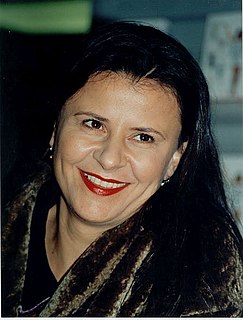A Quote by Pankaj Mishra
I think that Indian writing in English is a really peculiar beast. I can't think of any literature - perhaps Russian literature in the nineteenth century comes close - so exclusively produced by and closely identified with a tiny but powerful ruling elite, the upper-caste, Anglophone upper middle class, and dependent for so long on book buyers and readers elsewhere.
Quote Topics
Related Quotes
Most British playwrights of my generation, as well as younger folks, apparently feel somewhat obliged to Russian literature - and not only those writing for theatres. Russian literature is part of the basic background knowledge for any writer. So there is nothing exceptional in the interest I had towards Russian literature and theatre. Frankly, I couldn't image what a culture would be like without sympathy towards Russian literature and Russia, whether we'd be talking about drama or Djagilev.
We're at an interesting phase of Asian and Asian-American writing, where we might succeed in having readers look at us as creative individuals who write with fury and fire about the world, and in new ways, without having them say things like "I read a really good Indian book," or "That Malaysian fellow writes very well." So I hope by identifying as Indian I can get people who don't usually read "ethnic" or "Indian" literature to read that literature and enjoy it.
Christian Science has always appealed to the middle-classes and the upper middle classes. In part, this is because it requires a certain amount of education to study 'Science and Health' to the degree that Christian scientists do. It's not an easy book to read! It's 700 pages, and it's written in a nineteenth-century manner and diction.
A very large part of English middle-class education is devoted to the training of servants...In so far as it is, by definition, the training of upper servants, it includes, of course, the instilling of that kind of confidence which will enable the upper servants to supervise and direct the lower servants.
If you were a successful upper-middle-class Negro girl in the 1950s and '60s, you were, in practice and imagination, a white Protestant upper middle-class girl. Young, good-looking white women were the most desirable creatures in the world. It was hard not to want to imitate them; it was highly toxic, too, as we would learn.






































